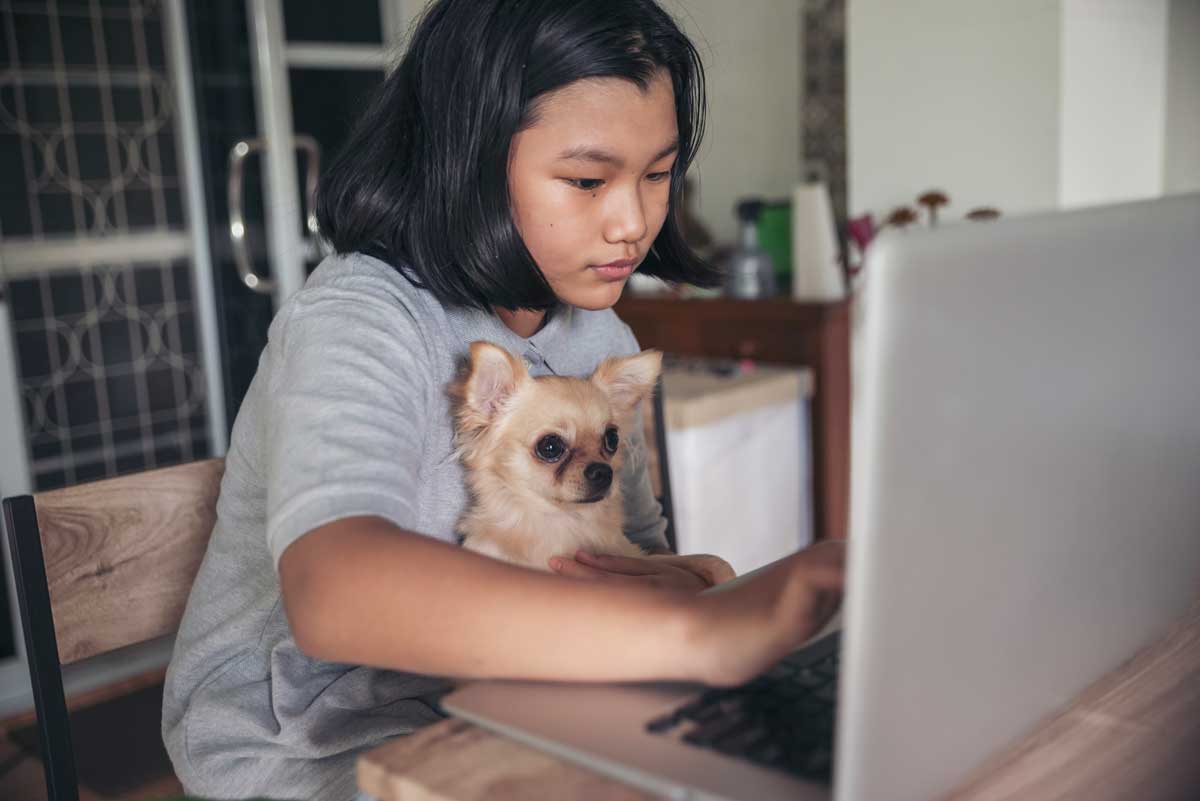Pets are recognized as an important part of family systems, yet research on adolescents’ relationships with their pets has been limited. There is relatively little known about how parents may directly or indirectly socialize the pet into the family system as an intentional (or unintentional) way of creating a positive or emotionally supportive environment for their children. Currently, little data exist on how parents view their adolescents’ interactions with pets and the potential benefits or risks associated with these relationships.
This is a collaborative project between the Cummings School of Veterinary Medicine at Tufts University and the Youth, Media & Wellbeing Research Lab at the Wellesley Centers for Women. The specific aims of this project are: 1) to longitudinally assess if the quality of youths’ relationships with their pets is predictive of healthy adolescent behaviors, and 2) to assess how parents influence the ways in which pets are integrated into the family system.
Methodology:
To achieve these aims, the researchers will utilize data from a larger ongoing longitudinal survey of students aged 11-15 and their parents. They will also recruit a subset of parents/guardians to participate in a follow-up exploratory interview study about socialization processes focused on how family pets can contribute to the healthy development of early adolescents.
Implications:
The results from this study will reduce gaps in empirical knowledge by focusing research attention on the quality and consistency of human-animal interactions between adolescents and their pets using a robust longitudinal approach. In addition, this study will provide nuanced mixed-methods data that will have significant implications for understanding the diverse ways in which parents have socialized the relationships between adolescents and their pets.



